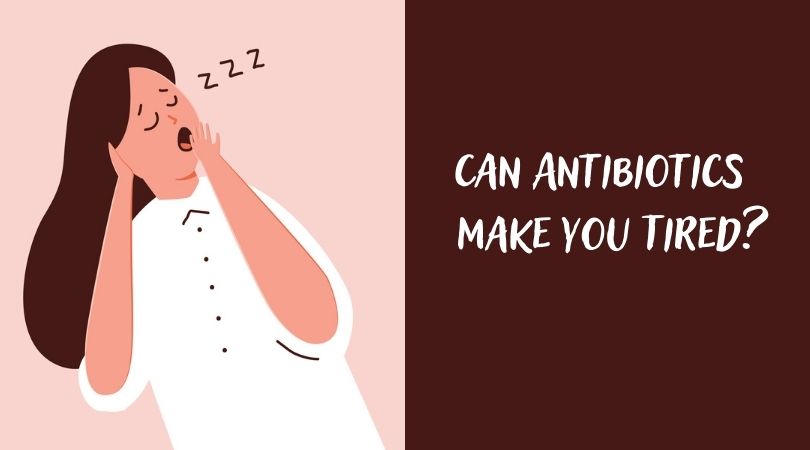
Everyone knows that antibiotics are a powerful medicine that has a negative and strong effect on the body of a sick person. But they contribute to a speedy recovery, despite how much strength they take away.
Antibiotics may cause tiredness due to a weakened immune function. You must remember that antibiotics kill not only harmful bacteria and viruses but also useful ones for the body.
Antibiotics can have adverse effects on your body
Antibiotics are medicines used to resist many diseases, they are mainly aimed at combating bacterial and fungal pathogens.
The most negative phenomenon when taking such drugs is their detrimental effect on the body as a whole. Often antibiotics make patients tired, disrupt their digestive tract, cause rashes on the skin. To cope with the first of these symptoms, you should breathe fresh air more often – walk in the park or at least go to the nearest store – this will help you recover faster.
Some time after the restoration of well-being, you can start a small amount of cardio and strength training, gradually increasing their frequency and duration. After any illness, weakness persists for some time because the body spends a large amount of energy on recovery and fighting viruses. The patient quickly gets used to this way of life, therefore, a feeling of constant fatigue may also persist.
What makes you tired?
Weakness can be caused not only by a weak immune system but also by the fact that antibiotics harm other parts of the body. In this case, the specialist prescribes drugs that will help mitigate the effect of antibiotics on those organs that they should not touch.
We must not forget that weakness after taking antibiotics can simply be a side effect. Many antibiotics cause side effects, all of them must be treated with attention and caution. In no case is it recommended to take antibiotics without a doctor’s prescription, this can cause additional harm to the body and affect weak organs.
Such strong drugs as antibiotics should be prescribed by a specialist – only a medical specialist will be able to assess the full range of consequences and choose the right concomitant medications for the patient. For example, if antibiotics cause the greatest damage to the digestive system, especially to the work of the intestines, then the specialist prescribes a course of drugs aimed at restoring the microflora.
When taking any antibiotics and other medications, you must never forget about drinking a large amount of water. A sufficient amount of liquid contributes not only to a speedy recovery but also to the removal of toxins and the washing out of harmful substances from the body.
We must always remember that the best solution for any manifestation of poor health is to contact a specialist, undergo an examination and pass the appropriate tests.
How to combat fatigue from antibiotics
To eliminate the feeling of weakness caused by antibiotics, it is recommended to spend more time in the fresh air, as well as to sleep well and eat right. To prevent unwanted side effects (intestinal dysbacteriosis, thrush (candidiasis) and other adverse conditions), it is recommended to also take drugs that stabilize the normal microflora of the body.
Fatty, fried and salty foods should not be present in the daily diet. Every day you should consume sour-milk products, soups and cereals. The necessary vitamins to eliminate the feeling of constant fatigue are found in apples, carrots, tomatoes, and sauerkraut. In addition, experts recommend drinking juice from beets, apples, carrots, and other fresh vegetables and fruits.
In rare cases, a person may remain lethargic for a long time after treatment with antibacterial drugs. In this case, it is necessary to consult with your doctor who will be able to prescribe a number of medications that contain vitamins and trace elements that help eliminate permanent weakness.
How to avoid other negative reactions from antibiotics
- Do not take antibiotics unnecessarily. They are intended solely for the treatment of bacterial infections. Before asking a doctor for a prescription, you need to make sure it is a bacterial infection.
- Your doctor must confirm that the drug and the dose are appropriate for the type of infection. It is now recommended to use narrow-spectrum antibiotics rather than broad-spectrum antibiotics, and this may also reduce the side effect of weakness.
- Agents such as augmentin, ceforal and zinnat affect the intestinal microflora. This leads to abdominal pain, bloating, diarrhea and weakness. Therefore, doctors advise to accompany the treatment with the intake of probiotics. They should be taken several hours after taking an antibiotic drug so that the antibiotic does not neutralize beneficial bacteria.
- Sufficient drinking and a balanced diet play an important role. Dehydration and disturbance of the electrolyte and carbohydrate balance of the blood cause a feeling of weakness in many diseases. If there is no appetite, you need to drink solutions of minerals and do not forget about water.